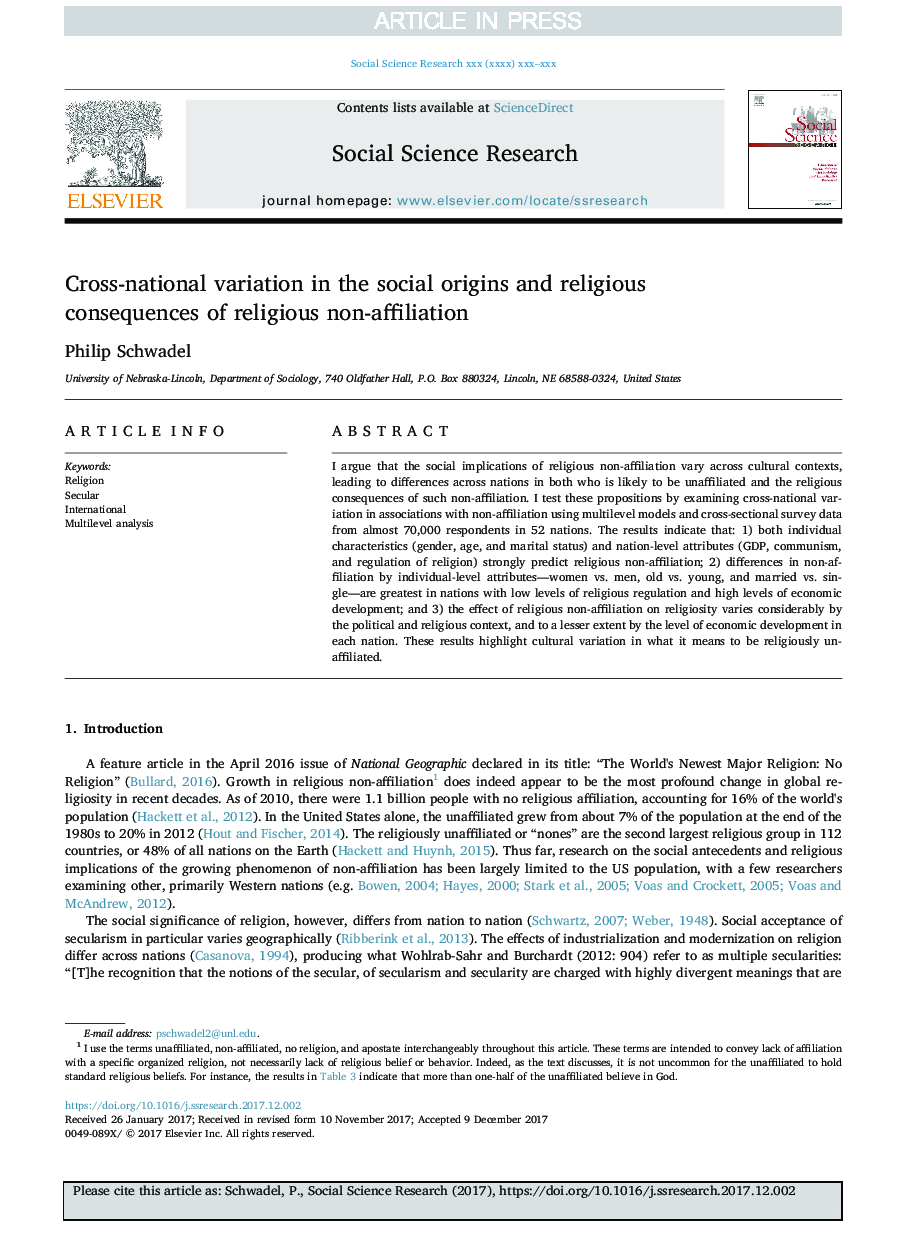| Article ID | Journal | Published Year | Pages | File Type |
|---|---|---|---|---|
| 7338838 | Social Science Research | 2018 | 17 Pages |
Abstract
I argue that the social implications of religious non-affiliation vary across cultural contexts, leading to differences across nations in both who is likely to be unaffiliated and the religious consequences of such non-affiliation. I test these propositions by examining cross-national variation in associations with non-affiliation using multilevel models and cross-sectional survey data from almost 70,000 respondents in 52 nations. The results indicate that: 1) both individual characteristics (gender, age, and marital status) and nation-level attributes (GDP, communism, and regulation of religion) strongly predict religious non-affiliation; 2) differences in non-affiliation by individual-level attributes-women vs. men, old vs. young, and married vs. single-are greatest in nations with low levels of religious regulation and high levels of economic development; and 3) the effect of religious non-affiliation on religiosity varies considerably by the political and religious context, and to a lesser extent by the level of economic development in each nation. These results highlight cultural variation in what it means to be religiously unaffiliated.
Related Topics
Social Sciences and Humanities
Psychology
Social Psychology
Authors
Philip Schwadel,
